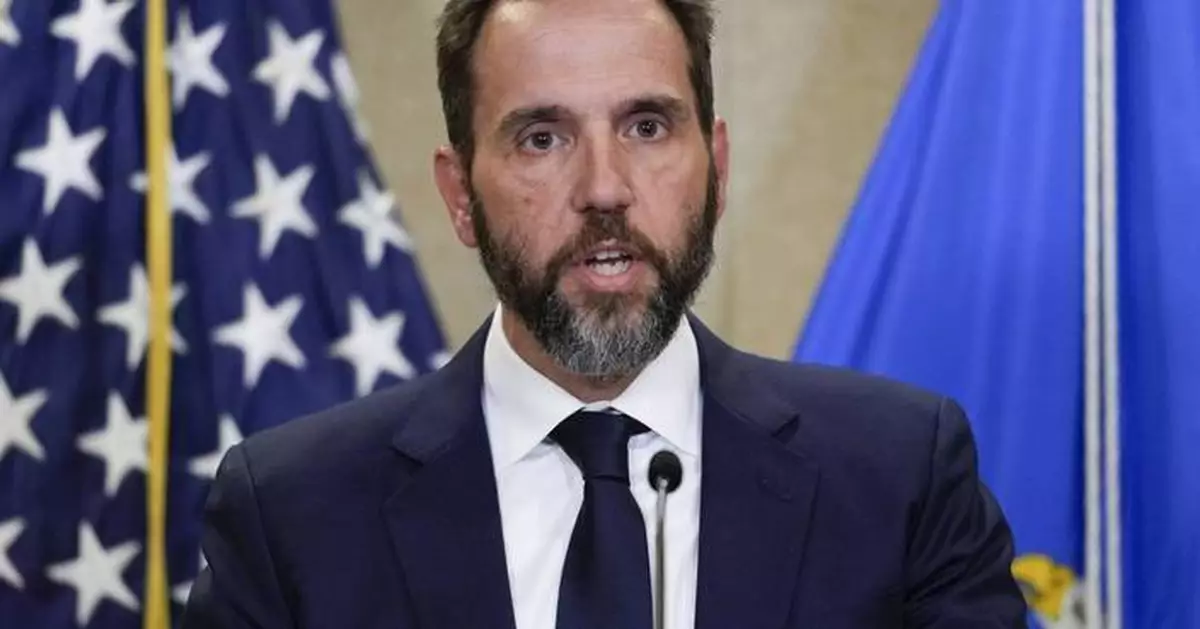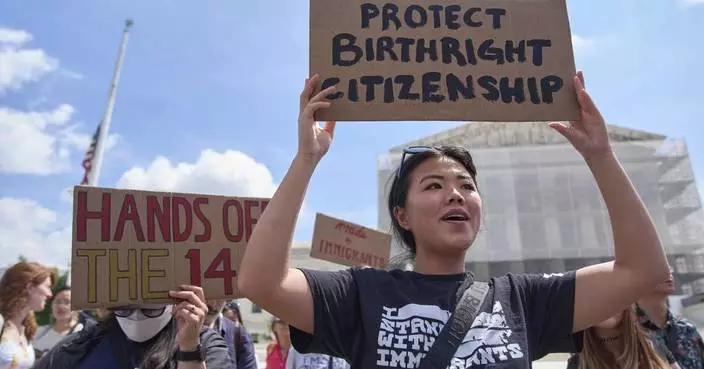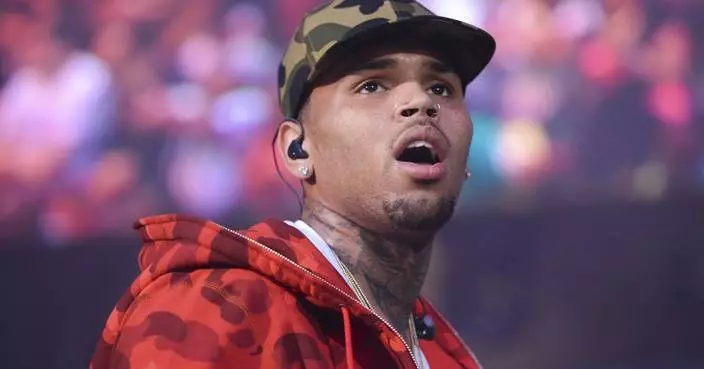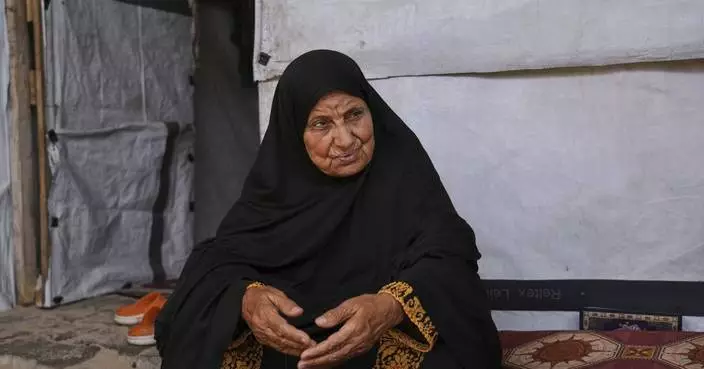WASHINGTON (AP) — A federal judge on Tuesday temporarily blocked the public release of special counsel Jack Smith's report on investigations into Donald Trump as an appeals court weighs a challenge to the disclosure of a much-anticipated document just days before the president-elect reclaims office.
The ruling from U.S. District Judge Aileen Cannon may represent a short-lived victory for Trump, but it's nonetheless the latest instance of the Trump-appointed jurist taking action in the Republican's favor. The halt followed an emergency request Monday by defense lawyers to block the release of a report that they said would be one-sided and prejudicial.
Trump responded to Cannon's order by complaining anew at a news conference about Smith's investigation and saying, “It'll be a fake report just like it was a fake investigation.”
It was unclear what the Justice Department, which has its own regulations governing special counsels and the reports they are expected to produce when they conclude their own, intended to do following Cannon's order.
The two-volume report is expected to describe charging decisions made in separate investigations by Smith into Trump's hoarding of classified documents at his Mar-a-Lago estate in Palm Beach, Florida, and his efforts to overturn the results of the 2020 presidential election in the run-up to the Jan. 6, 2021, riot at the U.S. Capitol.
Cannon's order did not make a distinction between the two volumes, instead barring the release of any information from any report for three days after the dispute is resolved by the Atlanta -based 11th U.S. Circuit Court of Appeals, unless the court orders otherwise. Smith’s team said it would file a response to the appeals court.
Trump was charged alongside two co-defendants in the classified documents case, which was dismissed in July by Cannon, who concluded that Smith's appointment was illegal. Trump was also charged in an election interference case that was significantly narrowed by a Supreme Court ruling on presidential immunity. Smith's team abandoned both cases in November after Trump's presidential victory, citing Justice Department policy that prohibits the federal prosecutions of sitting presidents.
Lawyers for Trump, including Todd Blanche, who was picked by Trump to serve as his deputy attorney general, urged Attorney General Merrick Garland a letter that was made public late Monday to block the release of the report and to remove Smith from his position “promptly” — or defer the release of the report to the incoming attorney general.
Using language mimicking Trump's own attacks on Smith and his work, Blanche told Garland that the “release of any confidential report prepared by this out-of-control private citizen unconstitutionally posing as a prosecutor would be nothing more than a lawless political stunt, designed to politically harm President Trump and justify the huge sums of taxpayer money Smith unconstitutionally spent on his failed and dismissed cases.”
The letter was included as part of an emergency request filed late Monday with Cannon by lawyers for Trump's codefendants in the documents case, Trump valet Walt Nauta and Mar-a-Lago property manager Carlos De Oliveira.
They asked Cannon to block the report's release, noting that Smith's appeal of her dismissal of charges against the men is pending and that the disclosure of pejorative information about them would be prejudicial.
In response to that request, Smith's team said in a two-page filing earlier Tuesday that it intended to submit its report to Garland by that afternoon and that the volume pertaining to the classified documents investigation would not be made public before 10 a.m. Friday.
Justice Department regulations call for special counsels appointed by the attorney general to submit a confidential report at the conclusion of their investigations. It's then up to the attorney general to decide what to make public.
Garland has made public in their entirety the reports produced by special counsels who operated under his watch, including Robert Hur's report on President Joe Biden's handling of classified information and John Durham's report on the FBI's Russian election interference investigation.
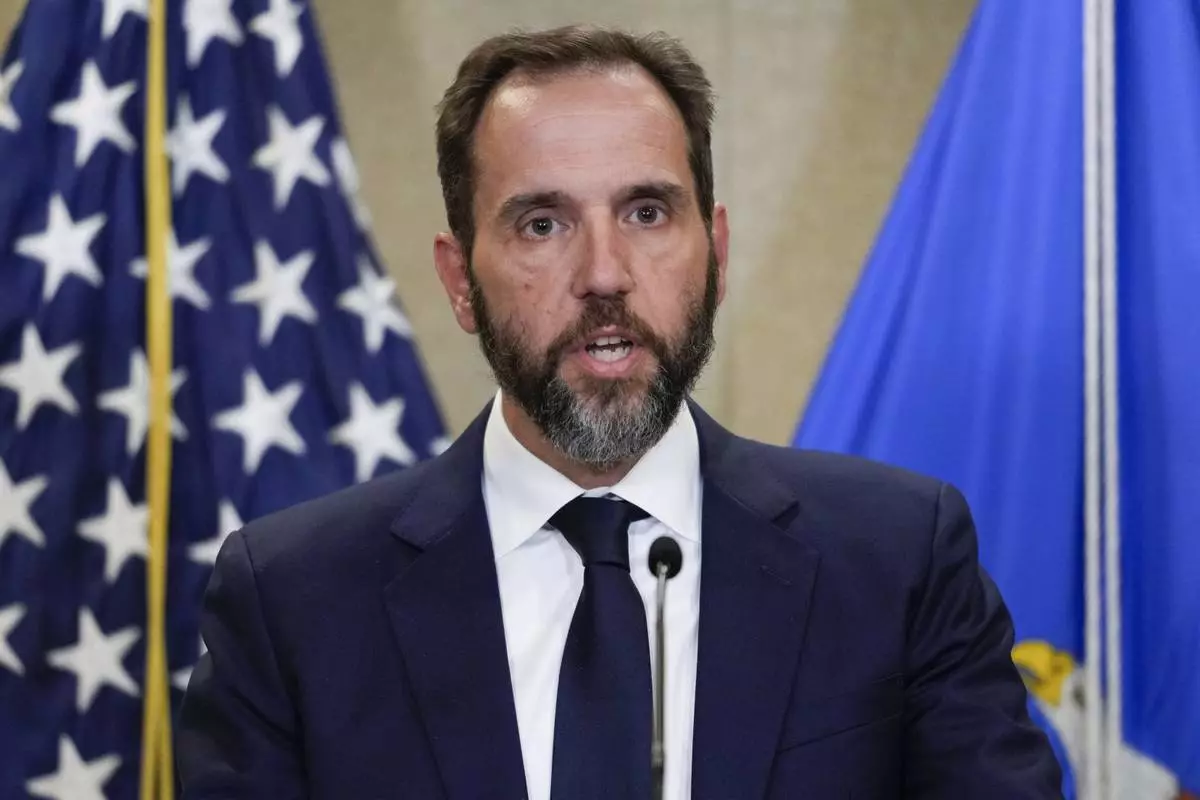
FILE - Special counsel Jack Smith speaks to the media about an indictment of former President Donald Trump, Aug. 1, 2023, at an office of the Department of Justice in Washington. (AP Photo/J. Scott Applewhite, File)


